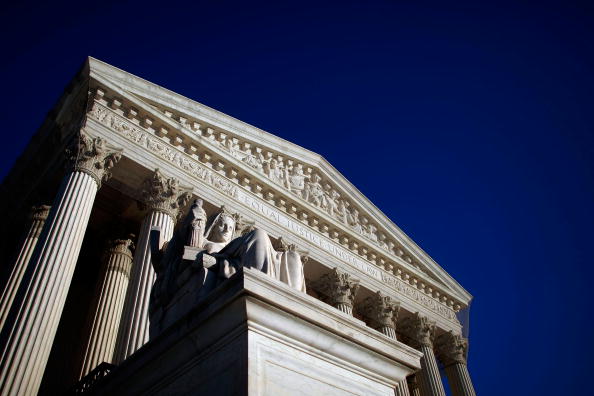Today the Supreme Court upheld a Michigan constitutional amendment that banned the consideration of race in college admissions. Six members of the Court recognized that the voters have the right to mandate equality under the law and ban unjust discrimination.
In 2006, the voters of Michigan passed Proposal 2—an initiative that amended the state constitution to prohibit the use of race in public education, employment, and contracting. This came after the Supreme Court’s decision in Grutter v. Bollinger that publicly funded schools may use race and ethnicity as “plus” factors in decisions to admit or deny prospective students. But the majority of voters in Michigan took to heart the notion that we live in a nation where people are judged not “by the color of their skin, but by the content of their character” and banned such discrimination.
Though Michigan’s Proposal 2 mandated equal treatment, it was challenged in court as a violation of equal protection. A federal appellate court struck down Proposal 2 as unconstitutional, finding that it violated the Equal Protection Clause of the U.S. Constitution but today the Supreme Court reversed that decision. In a concurring opinion, Justice Antonin Scalia pointed out that the issue before the Court was strange: “Does the Equal Protection Clause forbid a State from banning a practice that the Clause barely—and only provisionally—permits?” For six members of the Court, the answer was a resounding “no.” But this case highlights a broader problem. Writing for a plurality of the Court, Justice Anthony Kennedy wrote
Our constitutional system embraces…the right of citizens to debate so they can learn and decide and then, through the political process, act in concert to try to shape the course of their own times and the course of a nation that must strive always to make freedom ever greater and more secure.
Yet, the opponents of Proposal 2 sought to remove from public debate the issue of whether school administrators may consider race in college admissions. Justice Kennedy noted that “[q]uite in addition to the serious First Amendment implications of that position…it is inconsistent with the underlying premises of a responsible, functioning democracy.” Sadly, such tactics of “banishing from public discourse any and all opposition” have become commonplace in politics today. But today’s decision is a beacon of hope. Justice Kennedy continued:
It is demeaning to the democratic process to presume that voters are not capable of deciding an issue of this sensitivity on decent and rational grounds…Freedom embraces the right, indeed the duty, to engage in a rational, civic discourse in order to determine how best to form a consensus to shape the destiny of the Nation and its people.
The people of Michigan—along with five other states—have chosen to prohibit what they consider to be unjust discrimination. Indeed, in a concurring opinion, Justice Stephen Breyer commented that while he believes the Constitution permits race-based preferences, “it does not require [them].” Today’s decision affirms the right of the people to debate this issue and determine whether they will permit publicly funded schools to consider race in admissions. Polls show that Americans overwhelmingly oppose such discrimination and the Supreme Court has opened the pathway for them to stop state and local government from treating citizens differently based on their race.






























